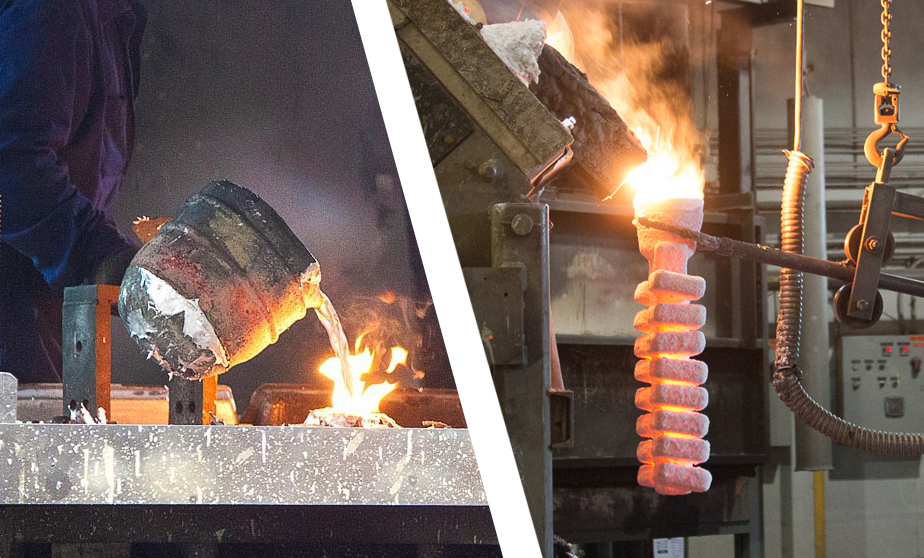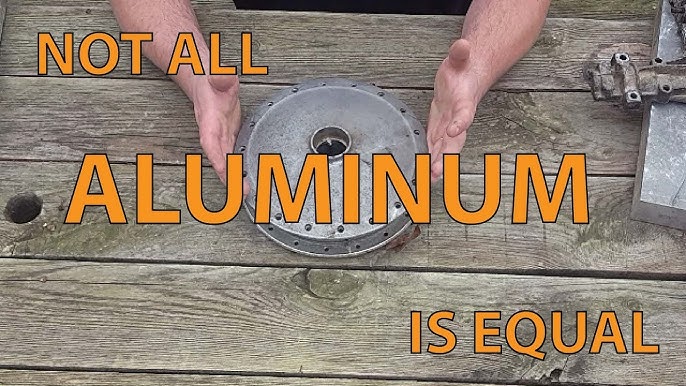Top Guidelines Of Stahl Specialty Company
Top Guidelines Of Stahl Specialty Company
Blog Article
Examine This Report on Stahl Specialty Company
Table of ContentsSome Known Details About Stahl Specialty Company 6 Simple Techniques For Stahl Specialty CompanyThe Ultimate Guide To Stahl Specialty CompanyOur Stahl Specialty Company DiariesFascination About Stahl Specialty CompanyThe smart Trick of Stahl Specialty Company That Nobody is Discussing

If you're making a metal item, you have actually likely thought about utilizing light weight aluminum as the base material. It has a high strength-to-weight proportion, excellent deterioration resistance, good formability, and visual allure. These variables have actually brought about its boosted appeal in the last few years. Pure light weight aluminum has limited applications, so it is typically combined with other elements, such as silicon, magnesium, and manganese to form alloys.
Different elements and quantities create a wide array of preferable physical and chemical homes. And the Light weight aluminum Association (AA), based in North America, has actually created requirements that control aluminum alloys' composition, residential or commercial properties, and classification. There are 2 sorts of aluminum alloys functioned and cast. Shop workers develop these alloy key ins different methods, which significantly affects their features.
The Only Guide to Stahl Specialty Company
Cast light weight aluminum alloys are made by melting pure light weight aluminum and integrating it with other metals while in fluid kind. The mix is put into a sand, die, or investment mold and mildew.

The 4th number, which comes after the decimal point, defines if the alloy is a spreading (xxx. Wrought light weight aluminum alloys also begin by combining molten light weight aluminum with other metals. In contrast to cast alloys, however, they are formed into their final shape through processes such as extrusion, rolling, and bending after the metal has actually strengthened into billets or ingots.
There are many small differences between functioned and cast light weight aluminum alloys, such as that cast alloys can have a lot more considerable amounts of various other steels than functioned alloys. The most notable difference between these alloys is the fabrication procedure through which they will certainly go to supply the last product. Aside from some surface treatments, cast alloys will certainly exit their mold and mildew in nearly the precise strong kind preferred, whereas functioned alloys will certainly go through numerous adjustments while in their strong state.
If you assume that a functioned alloy might be the very best for your project, have a look at several of our posts that explain even more about specific functioned alloys, such as Alloy 6061 and Alloy 6063. On the various other hand, if you think an actors alloy would be much better for you, you can find out more regarding some actors alloys in our Alloy 380 and Alloy 383 articles (coming quickly).
An Unbiased View of Stahl Specialty Company
When picking an aluminum factory for your production demands, it's important to examine a number of factors. Among one of the most crucial aspects to consider is the experience and capability of the foundry. Aluminum Castings. Selecting a factory who has the right expertise of the light weight aluminum spreading process, and the profile to reveal for it, helps to have a successful outcome for your job
Having the experience and industry understanding to engineer your castings for optimal manufacturing and quality outcomes will certainly enhance the project. Making aluminum spreading calls for a complex collection of procedures to achieve the ideal results. When picking a brand-new aluminum factory to partner with, ensure they have extensive market experience and are knowledgeable regarding all aspects of the aluminum casting process: design, production, product analysis, and product screening.
The foundry must additionally have a proven performance history of supplying exceptional items that fulfill or surpass customer assumptions. Quality control should also go to the top of your listing when choosing a light weight aluminum factory. By collaborating with a certified factory who follows the criteria for quality assurance, you can shield the integrity of your item and ensure it satisfies your specs.
By picking a firm who uses services that meet or surpass your item demands, you can be sure that your job will be completed with the utmost precision and performance. Various parts require various manufacturing techniques to cast aluminum, such as sand casting or pass away casting.
Stahl Specialty Company Fundamentals Explained
Pass away spreading is the name offered to the process of developing complex steel elements with usage of mold and mildews of the part, also recognized as passes away. The process utilizes non-ferrous steels which do not contain iron, such as light weight aluminum, zinc and magnesium, due to the desirable properties of the steels such as low weight, greater conductivity, non-magnetic conductivity and resistance to rust.
Pass away casting manufacturing is quickly, making high manufacturing levels of elements simple. It produces even more components than any type of other procedure, with a high level of precision and repeatability. To get more information regarding die casting and die spreading products made use of while doing so, checked out on. There are three sub-processes that fall under the classification of die casting: gravity pass away spreading (or long-term mold casting), low-pressure die spreading and high-pressure die casting.
No matter the sub-process, the die casting procedure can be broken down right into 6 actions. After the purity of the alloy is evaluated, passes away are produced. To prepare the passes away for casting, it is necessary that the dies are clean, to make sure that no residue from previous productions stay. After cleaning, the ejection lubrication is used to the die to ensure a smooth launch.
The Definitive Guide to Stahl Specialty Company
The pure metal, likewise known as ingot, is contributed to the heater and maintained the molten temperature of the steel, which is after that moved to the shot chamber and infused right into the die. The stress is after that maintained as the metal solidifies. Once the steel strengthens, the cooling procedure starts.
(https://issuu.com/stahlspecialc)
The thicker the wall surface of the part, the longer the cooling time due to the quantity of interior steel that likewise requires to cool down. After the component is fully cooled, the die halves open and an ejection system pushes the element out. Adhering to the ejection, the die is closed for the next shot cycle.
The flash is the additional material that is cast during the procedure. Deburring eliminates the smaller sized pieces, called burrs, after the trimming process.
3 Simple Techniques For Stahl Specialty Company

Zinc is one of one of the most pre-owned alloys for die spreading due to its lower cost of resources. It's also among the more powerful and stable metals. Plus, it has exceptional electrical and thermal conductivity. Its rust resistance additionally permits the components to be long-term, and it is among the discover this extra castable alloys due to its lower melting point - Foundries in Missouri.
As pointed out, this alloy is one of the most generally used, yet manufactures will, at times, choose light weight aluminum over zinc as a result of aluminum's manufacturing advantages. Light weight aluminum is highly cost-effective and among the extra flexible alloys. Aluminum is utilized for a variety of different items and markets anything from home window structures to aerospace products.
Report this page